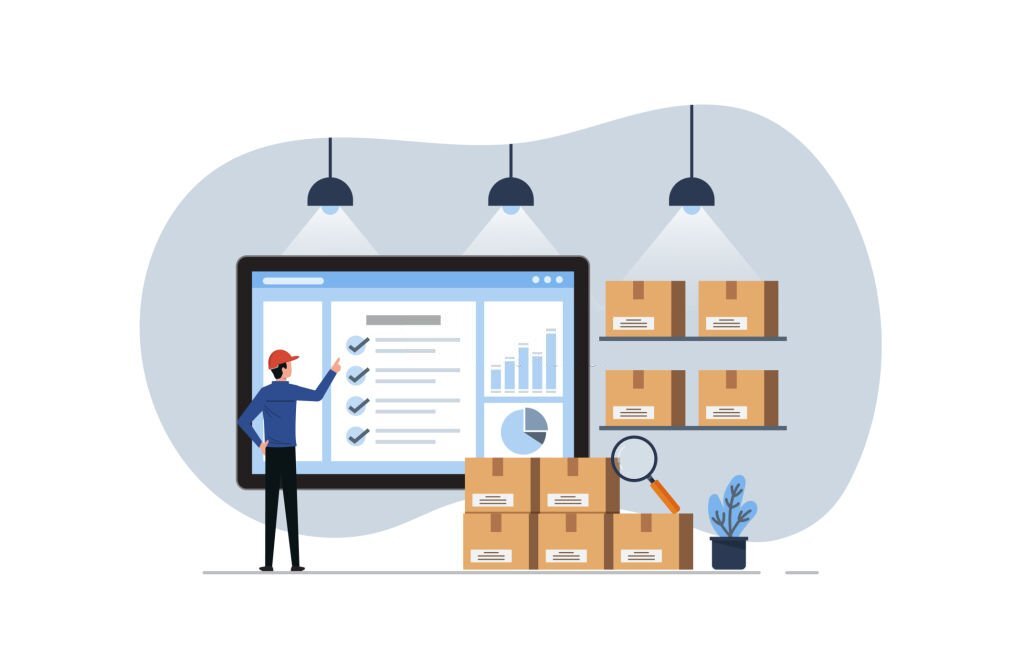In today’s fast-paced and interconnected business landscape, the efficiency and effectiveness of an organization’s operations play a critical role in its success. Embracing cutting-edge technologies that streamline processes and enhance productivity has become imperative for businesses striving to stay competitive. One such technology that has revolutionized the way businesses operate is Enterprise Resource Planning aka ERP system software in Pakistan.
The blog titled “How ERP System Software Can Streamline Your Business Operations” delves into the transformative power of ERP solutions and their ability to optimize various aspects of an organization’s operations. From managing finances and human resources to inventory and customer relationships, ERP software integrates diverse functions into a centralized platform, providing a holistic view of the business.
In this blog, we will explore the myriad benefits of ERP in Pakistan, uncovering how it enhances efficiency, reduces operational costs, and empowers decision-makers with real-time data insights. We will delve into the key features and functionalities of ERP solutions that cater to specific industries, helping businesses of all sizes achieve enhanced agility and scalability.
What Is The Difference Between CRM And ERP?
While both are critical for managing various aspects of a company’s operations, they serve different purposes and cater to specific needs within an organization. In this article, we will delve into the key differences between ERP accounting software and CRM systems.
Purpose and Focus:
The primary difference between ERP system in Pakistan and CRM lies in their core purposes and focus areas. ERP is an integrated software suite that consolidates and automates various business processes across different departments, such as finance, human resources, inventory management, procurement, and manufacturing. Its main objective is to provide a centralized platform that streamlines and optimizes back-office operations, ensuring data accuracy and facilitating efficient resource allocation.
On the other hand, CRM is a customer-centric software designed to manage and nurture customer relationships. It focuses on improving interactions with customers, managing leads, sales, marketing campaigns, and customer support. The core purpose of CRM is to enhance customer satisfaction, loyalty, and retention by providing a 360-degree view of customer interactions and preferences.
Data and Integration:
ERP systems are designed to handle large volumes of structured data from various departments. They integrate data from different functions into a single database, providing real-time visibility into business processes and performance. ERP system software in Pakistan facilitates cross-functional collaboration and ensures data consistency and accuracy across the organization.
In contrast, CRM systems primarily deal with unstructured customer data, such as contact information, communication history, purchase behavior, and customer feedback. While some CRM solutions integrate with ERP software to share essential customer and order data, their main focus is on managing customer-specific information to enhance customer experiences.
Scope and Modules:
ERP systems are extensive and encompass a wide range of modules, each dedicated to managing specific business functions. These modules may include finance and accounting, human resources, supply chain management, inventory control, production planning, and more. The integrated nature of ERP allows seamless communication and data flow between different modules.
On the other hand, CRM systems are more specialized and primarily consist of modules related to sales, marketing, and customer service. CRM modules may include lead management, sales automation, marketing campaigns, customer support ticketing, and customer analytics. The focus on customer interactions and sales funnel management makes CRM an invaluable tool for marketing and sales teams.
How Can ERP System Software Streamline Your Operations?
Centralized Data Management:
One of the primary benefits of ERP system software is its ability to centralize all relevant data from different departments and functions into a single, unified database. This centralization eliminates the need for multiple disparate systems and ensures that data is consistent, accurate, and up-to-date. As a result, employees have access to real-time information, enabling them to make more informed decisions and respond promptly to changing market conditions.
Enhanced Collaboration and Communication:
ERP system software facilitates seamless collaboration and communication among different departments within an organization. With shared access to data and reports, cross-functional teams can work together more efficiently, leading to better coordination and faster resolution of issues. The ability to communicate effectively and share critical information in real-time helps break down silos and fosters a culture of teamwork and cooperation.
Streamlined Business Processes:
ERP system software automates and streamlines various business processes, leading to increased operational efficiency and reduced manual workloads. Routine tasks, such as order processing, invoicing, and payroll, can be automated, freeing up valuable time for employees to focus on more strategic and value-added activities. This automation also minimizes the risk of human errors, resulting in greater accuracy and reliability.
Improved Inventory Management:
For businesses dealing with physical goods, effective inventory management is critical to avoid overstocking or stockouts. ERP system software provides real-time visibility into inventory levels, enabling businesses to optimize their stock levels. Reduce carrying costs, and improve order fulfillment. With better inventory control, businesses can meet customer demands more effectively and avoid unnecessary expenses.
Efficient Financial Management:
ERP system software offers robust financial management capabilities, allowing businesses to track expenses, manage accounts receivable and accounts payable, generate financial reports, and conduct budgeting and forecasting. The system provides insights into the financial health of the organization, helping management make informed decisions and devise strategies for growth and profitability.
Data Analytics and Reporting:
ERP system software comes equipped with powerful data analytics and reporting tools. That enable businesses to gain valuable insights from their data. Customizable dashboards and reports provide real-time performance indicators, allowing managers to monitor key metrics and identify trends and patterns. This data-driven approach to decision-making empowers businesses to adapt quickly to market changes and seize new opportunities.
Compliance and Security:
ERP system software in Pakistan helps businesses stay compliant with industry regulations and internal policies. By automating compliance processes and ensuring data accuracy. Additionally, ERP systems offer robust security measures to safeguard sensitive business information from unauthorized access and cyber threats. Providing peace of mind to both businesses and their customers.
ERP system in Pakistan plays a vital role in streamlining business operations and driving growth and success for modern organizations. By centralizing data, enhancing collaboration, automating processes, and providing valuable insights. ERP software empowers businesses to become more agile, competitive, and customer-focused. As technology continues to evolve. ERP system software will continue to be a critical tool for businesses seeking. To optimize their operations and achieve sustainable success.




